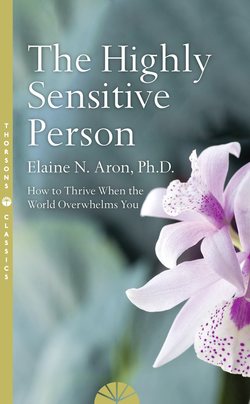Читать книгу The Highly Sensitive Person - Elaine N. Aron - Страница 26
Heredity and Environment
ОглавлениеSome of you may be wondering if you really inherited this trait, especially if you remember a time when your sensitivity seemed to begin or greatly increase.
In most cases, sensitivity is inherited. The evidence for this is strong, mainly from studies of identical twins who were raised apart but grew up behaving similarly, which always suggests that behavior is at least partly genetically determined.
On the other hand, it is not always true that both separated twins show the trait, even if they are identical. For example, each twin will also tend to develop a personality quite like the mother raising that twin, even though she is not the biological mother. The fact is, there are probably no inherited traits that cannot also be enhanced, decreased, or entirely produced or eliminated by enough of certain kinds of life experiences. For example, a child under stress at home or at school only needs to be born with a slight tendency to be sensitive and he or she will withdraw. Which may explain why children who have older brothers and sisters are more likely to be HSPs—and that would have nothing to do with genes. Similarly, studies of baby monkeys traumatized by separation from their mothers have found that these monkeys in adulthood behave much like monkeys born innately sensitive.
Circumstances can also force the trait to disappear. Many children born very sensitive are pushed hard by parents, schools, or friends to be bolder. Living in a noisy or crowded environment, growing up in a large family, or being made to be more physically active may sometimes reduce sensitivity, just as sensitive animals that are handled a great deal will sometimes lose some of their natural caution, at least with certain people or in specific situations. That the underlying trait is entirely gone, however, seems unlikely.
